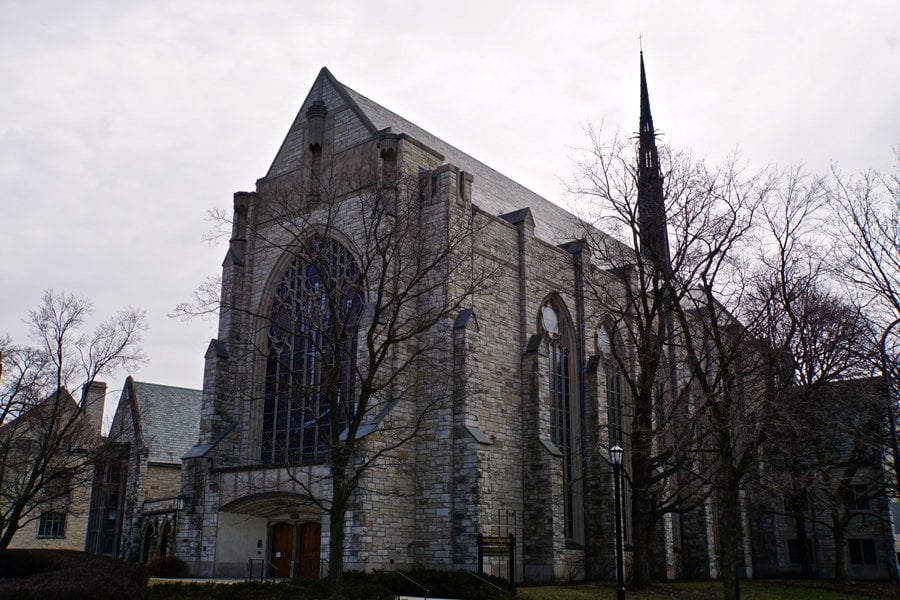Religious and Spiritual Life offers hybrid programming for Spiritual Ecology Month
Daily file photo by Owen Stidman
Parkes Hall. Religious and Spiritual Life is dedicating upcoming programs to environmental connection for Spiritual Ecology Month.
May 5, 2021
The Religious and Spiritual Life department is celebrating Spiritual Ecology Month to promote a more reciprocal relationship with the Earth.
The department is dedicating May to hybrid programming that gives students ways to connect with and care for the environment.
“(Spiritual ecology is) thinking about how we’re a part of the natural world, not just people who are designed to use it in a combustible way,” Kristen Glass Perez, the executive director of the Religious and Spiritual Life department, said.
The initiative was created by Glass Perez and RSL Associate Director Eric Budzynski after they learned about the growing field of spiritual ecology. Glass Perez said the department organized programming the month after Earth Day to “continue and deepen” conversations about human relationship to the Earth.
Budzynski emphasized that technological advancements have continued to isolate our community from the natural world, and this program is designed to combat that.
“Everything we do is keeping nature at bay,” Budzynski said. “Even when we do connect with nature, like in our backyard, it’s in a very curated, antiseptic way.”
The kickoff gave students an opportunity to learn more about spiritual ecology, hear about upcoming events and connect with others who are interested in this work, Glass Perez said.
The next program, scheduled for May 10, is a guided nature walk around the Evanston campus with Adam Kessel, Indigenous urban ecologist and author of “Zombie Gardening” and “Tales of the Plant Guardians.” A former Northwestern researcher, Kessel said he primarily studies non-native species and will focus his tour on how native and “invasive” plants have come to cohabit NU’s landscape.
“(NU is) such a fantastic space to talk about the intersections of people and the natural world,” Kessel said. “I’m excited to talk with the students about that.”
Glass Perez and Budzynski said the department will also be holding a number of virtual events.
RSL is inviting students to reserve a copy of this quarter’s spiritual reading, “Spiritual Ecology: 10 Practices to Reawaken the Sacred in Everyday Life” by Llewellyn Vaughan-Lee and Hilary Hart, which will be paired with weekly Instagram updates and a Zoom discussion.
RSL is also hosting an Instagram contest. By posting about ways they’ve been “inspired to make a change to care for (the) planet,” students can enter to win a $50 gift certificate to Blind Faith Cafe, a vegetarian restaurant in Evanston.
One of the department’s ongoing programs, Snack and Substance, will make use of texts about spiritual ecology this quarter in honor of the initiative, Glass Perez said. The first 20 registrants will receive a Grubhub certificate to purchase a snack for the May 17 virtual event.
Amid the pandemic, Budzynski described spiritual ecology as a “call” to begin a more intentional and considerate relationship with the planet.
“We’ve all had space to reassess a lot of things about our lives,” Budyzsnki said. “Why not make ecology and our relationship with the Earth one of the things to reassess as we move forward?”
Email: [email protected]
Twitter: @calliemorgan02
Related Stories:
— 40 Days of Spirituality encourages spiritual renewal through Instagram
— Community leaders discuss environmental justice at Citizens’ Greener Evanston Event
— Guide to Northwestern’s religious and spiritual organizations


